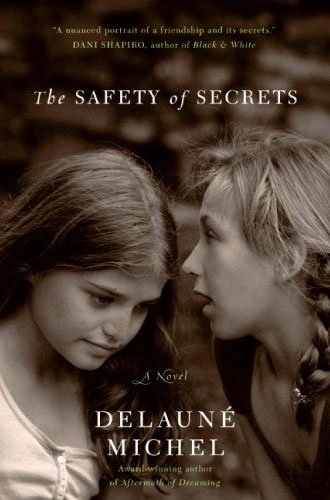I wanted to like this book. I wanted to like this book about sticky Louisiana summers, lifelong friendships, severe Southern mamas and the vapid allure of Los Angeles. I wanted to like this book because, superficially at least, "The Safety of Secrets" (HarperCollins, 2008, $13.95) and I are similarly obsessed. But the superficiality of both plot and character is the book's biggest problem. Split between past and present, Delauné Michel's latest offering tells the story of two girls from Lake Charles, La., guiding each other through childhoods fraught with trauma and irredeemable parental blunders.
In the present, Fiona and Patricia are Los Angeles actresses, pursuing haphazard careers and engaging in thinly veiled turf wars at beachside cafés and chintzy Hollywood salons. But even as Fiona laments "the Industry's" unattractive effect on her oldest friend's attitude, Fiona's own simpering need for recognition (she can't believe Patricia is forgoing a bridal party; Patricia got to parade around as maid of honor in Fiona's wedding) demonstrates the same sense of entitlement she condemns.
What's more, in "The Safety of Secrets," there is no safety. Fiona and Patricia constantly broadcast each other's intimacies, sometimes on national television. Patricia's status as a reality-TV personality and her short-lived marriage to the box office flavor-of-the-year reek of a particular L.A.-centric desperation. While annoying, these qualities are forgivable. Her misplaced impetuosity and consistent lack of consideration for others are more difficult to overlook.
Fiona lacks Patricia's brazenness. An occasional prime-time "guest star," she is self-absorbed and self-loathing. As the narrator, she courts readers' sympathy, but mostly, she just comes across as whiny. It's difficult to empathize with a pregnant actress-cum-housewife, married to a producer and living in a multi-million-dollar home in trendy Los Feliz, especially when she displays spinelessness at every turn. She favors a faithless friend over her puppy-dog-loyal husband, botches an audition by catering to a rival actress, avoids her steely mother and refuses to confront the man who, in a single childhood episode, spurned her greatest adult pathology. As Fiona recounts the advice of an older actress, to always hoard a dose of "f*ck you," she worries that motherhood will stifle her edge. But I'm pretty sure she never had a "f*ck you."
Flashbacks are Michel's primary device in seeking compassion for her passive-aggressive characters, and they compile the book's strongest sequences. As playmates, Fiona and Patricia exhibit thoughtfulness towards each other, the likes of which their adult incarnations seem incapable. And it's easier to recognize the characters' humanity without the pervasive "insider's knowledge" of L.A.exhibited in the text's frenzied name-dropping of boutiques and restaurants. The adult chapters read derivatively, almost a continuation of Rebecca Wells' prattling "Ya-Ya Sisterhood" tales or a feeble attempt at the memoir-based fiction of actress/writer Carrie Fisher. Unlike Fisher, though, the psychoses of Michel's characters are more pathetic than clever, and the City of Demons is overstated rather than wittily nuanced.
Compelling bits include the girls' first encounter, when Patricia's mothera Jane-Fonda-wannabepacks her daughter off to school on the dawn of the Red Birds' first meeting sans uniform. Fiona's mother is the fussy typenot only is Fiona's uniform neatly pressed, Fiona is the only first grader to sport coveted Red Bird knee socks. But when Fiona notices Patricia's predicament, she swaps the knee socks for her new friend's worn cotton variety. "Now we're just alike," Patricia beams. It's a tender "walk-a-mile" moment.
In one of the most authentic flashbacks, the girls get caught in a rainstorm on their way home from the beauty parlor. Taking refuge on a stranger's porch, they pop open newly purchased shampoo and huddle under the run-off gutter, gleefully soaping and shouting, "Free hair washes! Come get your hair washed!" Michel's depiction of the scene is spot-on, down to Patricia's furious whirlwind flinging of the droplets ("It's like the spin cycle in the washer!" she exclaims.)
While there are some entertaining anecdotes, "The Safety of Secrets" is, for the most part, conflicted and distracting. Its attempts to probe issues such as abuse and miscarriage are overshadowed by the frivolity of the adult characters, and its resolutionthe concept that maybe sharing is safer than keeping secretsflounders in my disregard for these characters.
However, as a quick read and a flash of "industry" culture, the book is relatively painless. For some readers (especially those who have never lived in L.A.), it's probably even enjoyable.
DeLauné Michel will sign copies of "The Safety of Secrets" at Lemuria Bookstore (4465 I-55 N.) on June 12 at 5 p.m., with a reading at 5:30 p.m. Call 601-366-7619 for more information.



Comments
Use the comment form below to begin a discussion about this content.
comments powered by Disqus